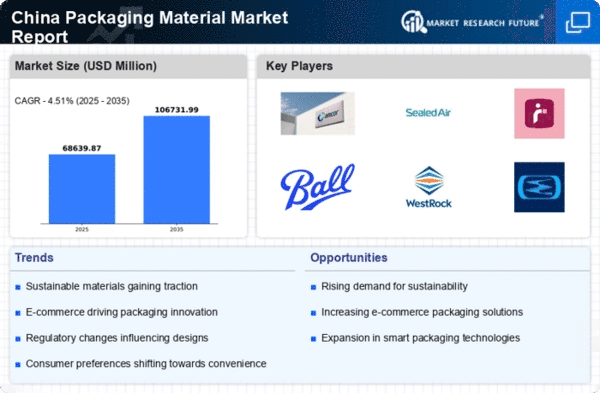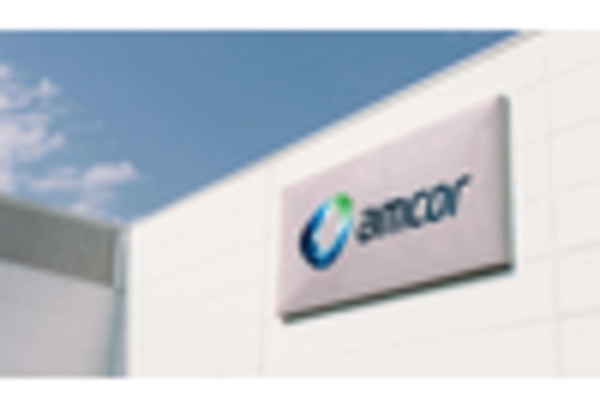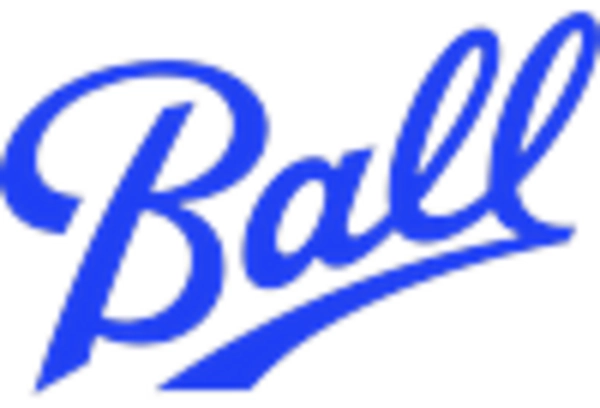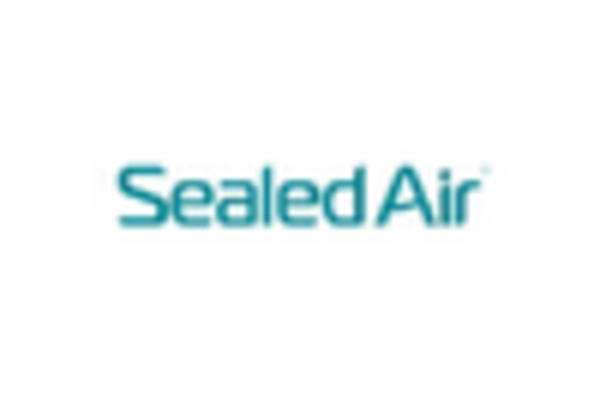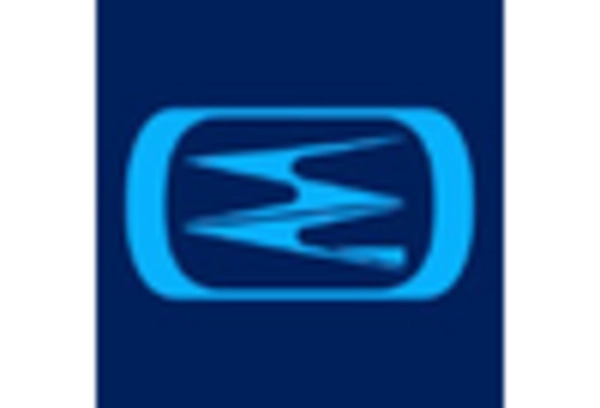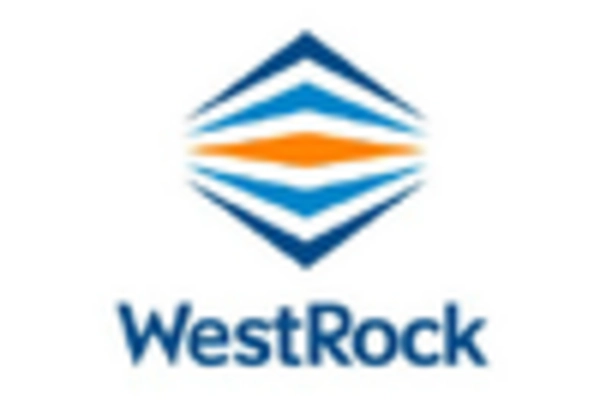E-commerce Growth
The rapid expansion of e-commerce in China is a pivotal driver for the packaging material market. As online shopping continues to gain traction, the demand for efficient and protective packaging solutions rises. In 2025, e-commerce sales in China are projected to reach approximately $2 trillion, necessitating innovative packaging materials that ensure product safety during transit. This trend compels manufacturers to develop packaging that is not only functional but also appealing to consumers. The packaging material market must adapt to the unique requirements of e-commerce, including lightweight materials and easy-to-open designs, to cater to the evolving preferences of online shoppers.
Regulatory Compliance
Stringent regulations regarding packaging waste and recycling in China significantly influence the packaging material market. The government has implemented various policies aimed at reducing plastic waste and promoting sustainable practices. For instance, the introduction of the 'Plastic Waste Management Policy' mandates that companies adopt eco-friendly packaging solutions. As a result, the packaging material market is witnessing a shift towards biodegradable and recyclable materials. This regulatory landscape is expected to drive the market's growth, with an estimated increase of 15% in demand for sustainable packaging solutions by 2026. Companies that proactively comply with these regulations are likely to gain a competitive edge.
Technological Innovations in Packaging
Technological advancements play a crucial role in shaping the packaging material market. Innovations such as smart packaging, which incorporates sensors and QR codes, enhance consumer engagement and product tracking. In 2025, the market for smart packaging in China is expected to grow by 20%, driven by the increasing demand for enhanced user experiences. The packaging material market is leveraging these technologies to improve functionality and sustainability. For instance, the integration of biodegradable materials with smart technology presents a unique opportunity for manufacturers to differentiate their products. This trend indicates a potential shift towards more interactive and sustainable packaging solutions.
Rising Demand from Food and Beverage Sector
The food and beverage sector in China is a major contributor to the packaging material market. With the increasing consumption of packaged food and beverages, the demand for innovative and safe packaging solutions is on the rise. In 2025, the food packaging segment is projected to account for over 40% of the total packaging material market. This growth is driven by the need for materials that ensure product freshness and safety. The packaging material market must respond to this demand by developing materials that meet stringent food safety standards while also appealing to health-conscious consumers. The evolving preferences in this sector are likely to shape future packaging trends.
Consumer Preferences for Eco-friendly Products
There is a noticeable shift in consumer preferences towards eco-friendly products in China, which is a significant driver for the packaging material market. As awareness of environmental issues grows, consumers increasingly seek products that utilize sustainable packaging. Research indicates that approximately 70% of Chinese consumers are willing to pay a premium for products with eco-friendly packaging. This trend compels manufacturers within the packaging material market to innovate and offer sustainable alternatives, such as plant-based plastics and recycled materials. The growing demand for environmentally responsible packaging solutions is likely to reshape the competitive landscape of the market.


